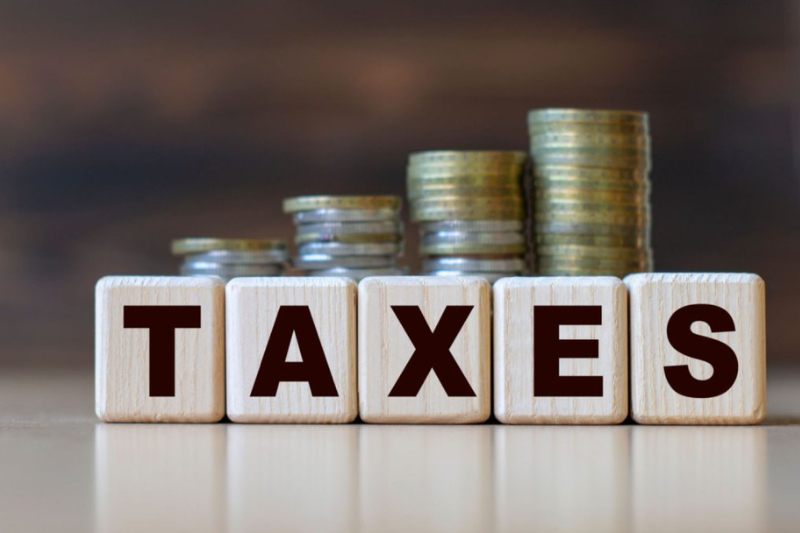Africa is a continent with diverse economic and social conditions, which are reflected in the different tax systems and rates that each country adopts. Taxation is a key tool for governments to raise revenue, provide public services, redistribute income, and influence economic behavior. However, taxation also poses challenges and trade-offs, such as balancing efficiency and equity, ensuring compliance and fairness, and fostering growth and development. Here is a ranking of 10 African countries based on their tax-to-GDP ratios, which measure the amount of taxes collected as a percentage of the size of the economy.
1. Seychelles
Seychelles is an island nation in the Indian Ocean that has the highest tax-to-GDP ratio in Africa, at 32.4 percent in 2018¹. Seychelles relies heavily on taxes on goods and services, which account for 57.6 percent of its total tax revenue, followed by individual taxes (25.5 percent) and corporate taxes (11.9 percent). Seychelles has a progressive personal income tax system, with rates ranging from 0 to 30 percent, and a flat corporate income tax rate of 25 percent.
2. Tunisia
Tunisia is a North African country that has the second-highest tax-to-GDP ratio in Africa, at 32.1 percent in 2018. Tunisia’s tax structure is dominated by taxes on goods and services, which make up 54.6 percent of its total tax revenue, followed by individual taxes (23.7 percent) and corporate taxes (14.9 percent). Tunisia has a progressive personal income tax system, with rates ranging from 0 to 35 percent, and a corporate income tax rate of 25 percent for most sectors.
Keep Reading
3. South Africa
South Africa is the most industrialized and diversified economy in Africa, and has the third-highest tax-to-GDP ratio in the continent, at 29.1 percent in 2018. South Africa’s tax mix is balanced between taxes on goods and services (38.7 percent of total tax revenue), individual taxes (37.9 percent) and corporate taxes (18.1 percent). South Africa has a progressive personal income tax system, with rates ranging from 18 to 45 percent, and a flat corporate income tax rate of 28 percent.
4. Algeria
Algeria is an oil-rich country in North Africa that has the fourth-highest tax-to-GDP ratio in Africa, at 37.2 percent in 2018. However, this ratio is inflated by the inclusion of social security contributions, which are not considered taxes in most countries. Excluding these contributions, Algeria’s tax-to-GDP ratio would be 20.8 percent. Algeria’s tax revenue is mainly derived from taxes on goods and services (46.9 percent of total tax revenue), corporate taxes (28.4 percent) and individual taxes (16.9 percent)². Algeria has a progressive personal income tax system, with rates ranging from 0 to 35 percent, and a corporate income tax rate of 23 percent for most sectors.
5. Morocco
Morocco is a North African country that has the fifth-highest tax-to-GDP ratio in Africa, at 27.8 percent in 2018¹. Morocco’s tax structure is similar to that of Algeria, with taxes on goods and services accounting for 48.8 percent of total tax revenue, corporate taxes for 24.4 percent, and individual taxes for 19.1 percent. Morocco has a progressive personal income tax system, with rates ranging from 0 to 38 percent, and a corporate income tax rate of 31 percent for most sectors.
6. Mozambique
Mozambique is a Southern African country that has the sixth-highest tax-to-GDP ratio in Africa, at 27.1 percent in 2018. Mozambique’s tax revenue is largely composed of taxes on goods and services (66.5 percent of total tax revenue), followed by corporate taxes (17.9 percent) and individual taxes (10.4 percent). Mozambique has a progressive personal income tax system, with rates ranging from 10 to 32 percent, and a corporate income tax rate of 32 percent for most sectors.
7. Djibouti
Djibouti is a small country in the Horn of Africa that has the seventh-highest tax-to-GDP ratio in Africa, at 21.8 percent in 2018. Djibouti’s tax revenue is mainly generated by taxes on goods and services (67.9 percent of total tax revenue), followed by corporate taxes (16.8 percent) and individual taxes (11.6 percent). Djibouti has a progressive personal income tax system, with rates ranging from 2 to 30 percent, and a flat corporate income tax rate of 25 percent.
8. Mauritius
Mauritius is an island nation in the Indian Ocean that has the eighth-highest tax-to-GDP ratio in Africa, at 20.4 percent in 2018¹. Mauritius’s tax revenue is predominantly derived from taxes on goods and services (57.7 percent of total tax revenue), followed by individual taxes (24.8 percent) and corporate taxes (13.9 percent). Mauritius has a flat personal income tax rate of 15 percent, and a flat corporate income tax rate of 15 percent for most sectors.
9. Lesotho
Lesotho is a landlocked country in Southern Africa that has the ninth-highest tax-to-GDP ratio in Africa, at 20.2 percent in 2018. Lesotho’s tax revenue is largely composed of taxes on goods and services (54.5 percent of total tax revenue), followed by individual taxes (23.8 percent) and corporate taxes (15.9 percent)². Lesotho has a progressive personal income tax system, with rates ranging from 22 to 35 percent, and a flat corporate income tax rate of 25 percent.
10. Eritrea
Eritrea is a country in the Horn of Africa that has the tenth-highest tax-to-GDP ratio in Africa, at 30.5 percent in 2018¹. However, this ratio is inflated by the inclusion of social security contributions, which are not considered taxes in most countries. Excluding these contributions, Eritrea’s tax-to-GDP ratio would be 19.9 percent. Eritrea’s tax revenue is mainly generated by taxes on goods and services (49.8 percent of total tax revenue), followed by corporate taxes (28.9 percent) and individual taxes (16.8 percent). Eritrea has a progressive personal income tax system, with rates ranging from 0 to 30 percent, and a corporate income tax rate of 30 percent for most sectors.

